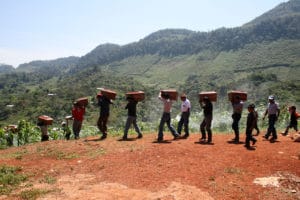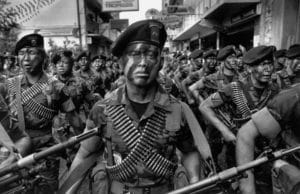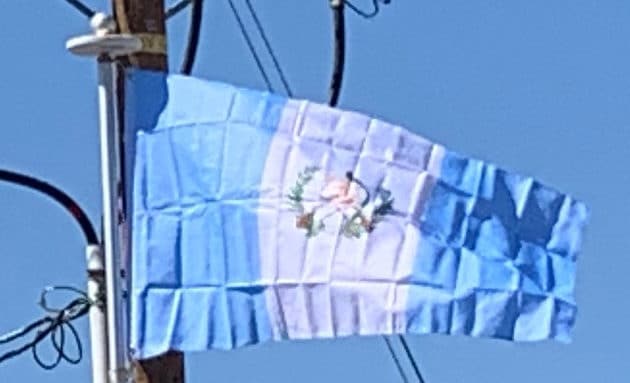In the last few years, millions of documents related to crimes committed during the civil war have been found abandoned by the former Guatemalan police. The families of over 45,000 Guatemalan activists who disappeared during the civil war are now reviewing the documents, which have been digitized.

During the first ten years of the civil war, the victims of the state-sponsored terror were primarily students, workers, professionals, and opposition figures, but in the last years they were thousands of mostly rural Maya farmers and non-combatants. More than 450 Maya villages were destroyed and over 1 million people became refugees or displaced within Guatemala.
In 1995, the Catholic Archdiocese of Guatemala began the Recovery of Historical Memory (REMHI) project,[137] known in Spanish as “El Proyecto de la Recuperación de la Memoria Histórica”, to collect the facts and history of Guatemala’s long civil war and confront the truth of those years. On 24 April 1998, REMHI presented the results of its work in the report “Guatemala: Nunca Más!”. This report summarized testimony and statements of thousands of witnesses and victims of repression during the Civil War. “The report laid the blame for 80 per cent of the atrocities at the door of the Guatemalan Army and its collaborators within the social and political elite.”
Catholic Bishop Juan José Gerardi Conedera worked on the Recovery of Historical Memory Project and two days after he announced the release of its report on victims of the Guatemalan Civil War, “Guatemala: Nunca Más!”, in April 1998, Bishop Gerardi was attacked in his garage and beaten to death. In 2001, in the first trial in a civilian court of members of the military in Guatemalan history, three Army officers were convicted of his death and sentenced to 30 years in prison. A priest was convicted as an accomplice and was sentenced to 20 years in prison.

According to the report, Recuperación de la Memoria Histórica (REMHI), some 200,000 people died. More than one million people were forced to flee their homes and hundreds of villages were destroyed. The Historical Clarification Commission attributed more than 93% of all documented violations of human rights to Guatemala’s military government, and estimated that Maya Indians accounted for 83% of the victims. It concluded in 1999 that state actions constituted genocide.
In some areas such as Baja Verapaz, the Truth Commission found that the Guatemalan state engaged in an intentional policy of genocide against particular ethnic groups in the Civil War. In 1999, U.S. president Bill Clinton said that the United States had been wrong to have provided support to the Guatemalan military forces that took part in these brutal civilian killings.
Since 2000:
Since the peace accords Guatemala has had both economic growth and successive democratic elections, most recently in 2015. In the 2015 elections, Jimmy Morales of the National Convergence Front won the presidency. He assumed office on 14 January 2016.
